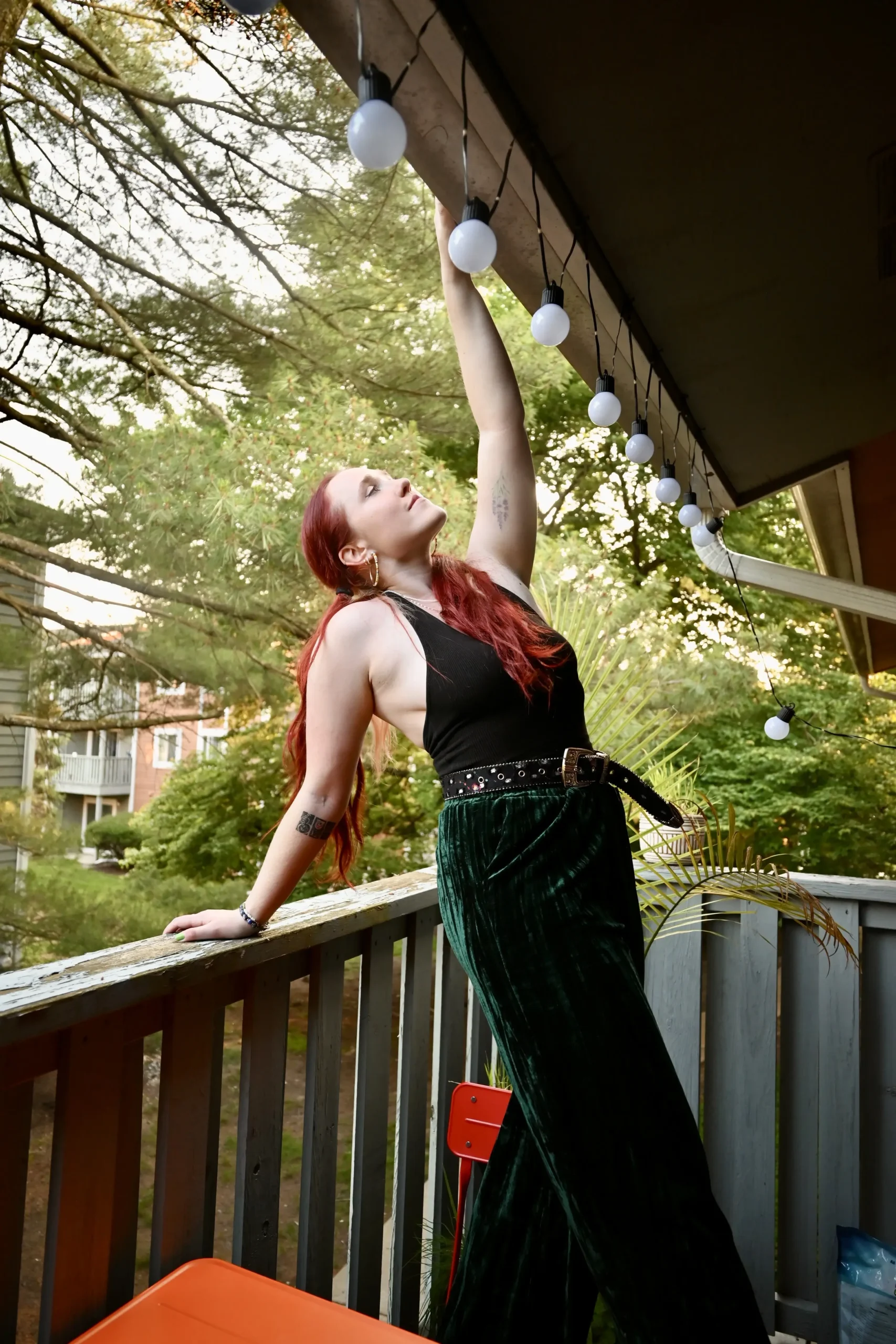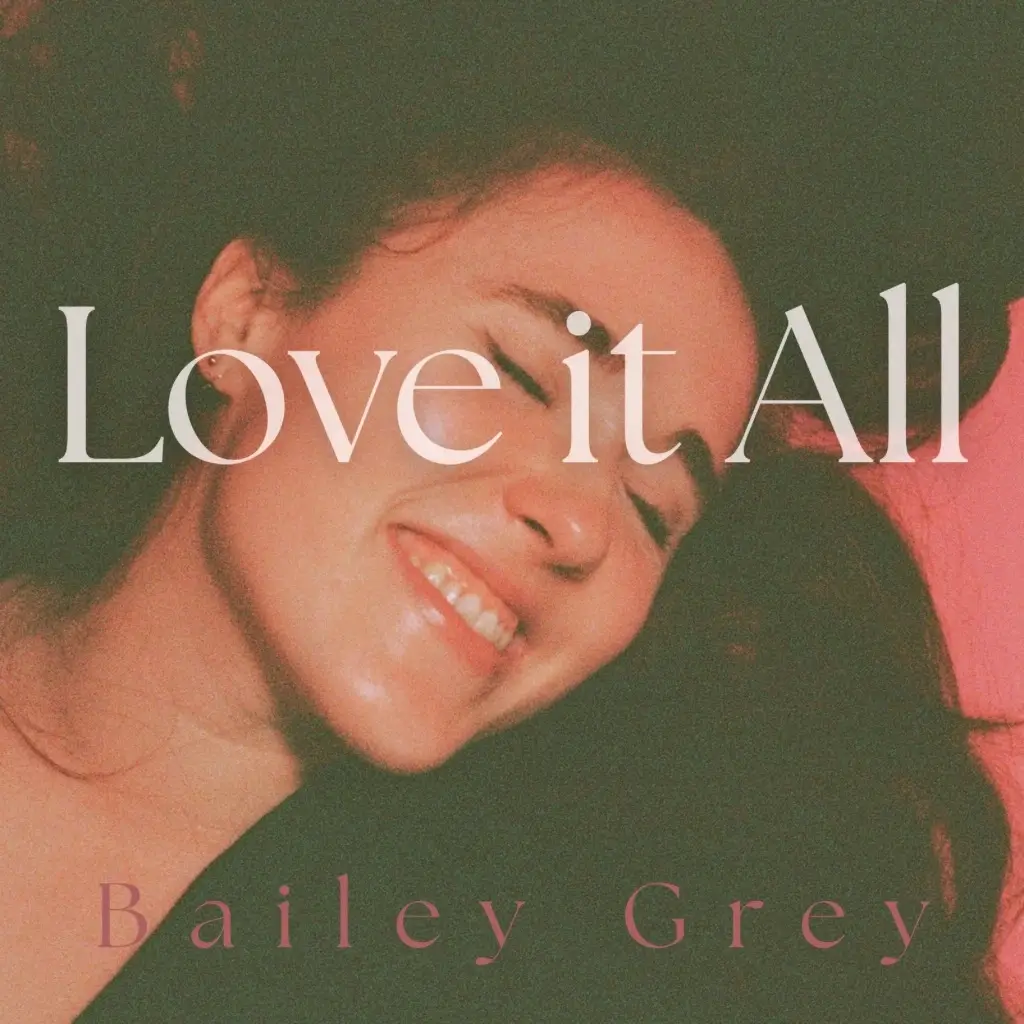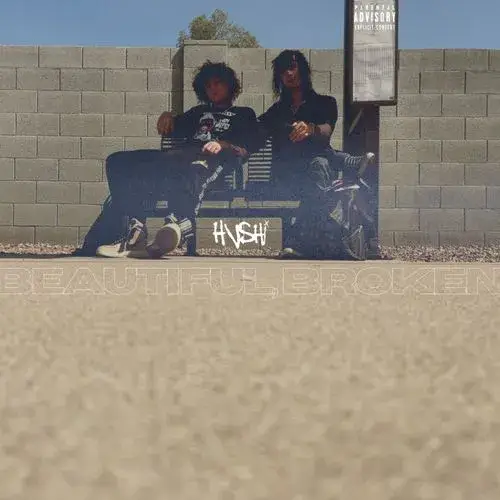Bailey Grey enters the indie arena with Love It All, a 15-track debut that behaves less like an introduction and more like someone finally deciding to live with the lights on. It’s a near-hour of emotional overabundance; the kind of debut that refuses to politely occupy a corner of your listening queue and instead sprawls across the entire couch. Grey seems acutely aware that modern music culture wants everything to be digestible, playlist-sized, algorithmically agreeable, and she responds with an album that is almost rude in how much feeling it contains. It’s the musical equivalent of showing up to a minimalist dinner party carrying a lasagna dish so large it becomes a fire hazard.
From the first moments, Bailey Grey steers clear of the typical “emerging indie darling finding her voice” narrative. There is no searching here. No training wheels. Her softness, reminiscent of early Gabrielle Aplin in its shade and phrasing, lands not as fragility but as intent: a deliberate refusal to raise her voice just to be heard in a loud room. And when the warmth of her tone deepens into something smokier, it hints at the kind of casual emotional articulation Norah Jones made look effortless. Grey sings like someone who has done the introspection homework and is now simply handing in the assignment.

It’s almost annoying, honestly, how fully formed Love It All sounds. You can practically hear music reviewers across the internet sighing as they delete their prewritten phrases because none of them apply. Grey doesn’t feel new; she feels returned. As if there was some unspoken hiatus we weren’t told about, and now she’s arrived carrying an entire emotional thesis she expects us to read, annotate, and discuss.
Stylistically, the album refuses to sit still. It moves through indie-pop, acoustic folk, electro shimmer, and cinematic ambience with the restless confidence of someone who has tasted multiple genres and decided she is, in fact, allergic to settling. The transitions aren’t curated like a mood board; they’re instinctive, messy, human; a quality modern pop often tries to smooth into oblivion. Listening to the album is like watching someone flip through emotional Polaroids: each one slightly different, none of them edited, all of them real.
And then there’s the ethos behind it all. Love It All feels like a quiet protest against the 15-second clip economy, a rebellion waged with softness rather than spectacle. Grey structures the record with the utterly uncommercial assumption that the listener might actually be willing to sit still for a story. This is not the “skip to the chorus” model. This is “you will listen to the prelude because the prelude matters.” It’s a slightly deranged level of trust in the audience, and strangely refreshing.
Only in the latter half does the album start passing out its clearest emotional postcards. “Sun Roof,” one of the early standouts, shimmers with a nostalgic glow that could easily veer saccharine, but Grey avoids the trap. Instead of reaching for the usual sepia-toned shortcuts, she builds something genuinely reflective: golden-hour warmth without the Instagram filter. The song recalls youthful freedom with such precision that it feels like borrowing a memory rather than manufacturing one.
“Get Lost” follows as a softly rebellious counterpoint; more dreamlike, more elastic, with a pulse that feels like a heartbeat discovering espresso for the first time. It’s a quietly urgent track that invites you to embrace disorientation, not as danger but as possibility. And this is where her production instincts click fully into place. Rather than stacking innovation for innovation’s sake, she constructs emotional architecture: synths that hover, rhythms that lean forward without sprinting, melodies that choose patience over punch.
Across the album, each track behaves like a chapter in a cyclical emotional arc. Joy slips into dread, clarity into confusion, tenderness into chaos, and back again. Grey refuses the standard “breakdown to breakthrough” formula. Life, she seems to argue, doesn’t work that way and neither should the music. The result is a debut that doesn’t feel curated or optimized; it feels inhabited.
The production reinforces this ethos with an elegant sort of restraint. It’s lush without drowning in its own textures, cinematic without leaning on spectacle. There’s enough space to breathe and enough detail to stay engaged; a Norah Jones-like balance of intimacy and atmosphere, but with a modern indie shimmer. When the arrangements swell, they do so because the story needs it, not because the producer got bored.
By the album’s final stretch, Love It All has become something larger than its components. Not a playlist. Not a vibes compilation. A person; inconsistent, tender, and impossible to shrink. There’s a generosity embedded in the songwriting, a quiet permission to feel things without apologizing for the scale of them.
Bailey Grey isn’t positioning herself as the next breakout indie pop star or the heir to some ethereal singer-songwriter lineage. She’s doing something trickier: inviting listeners into an interior world that is both idiosyncratic and instantly recognizable. And the most refreshing part of Love It All is how unapologetically it refuses to be small. It barrels through the door carrying its own emotional furniture. With Love It All, Bailey Grey doesn’t just debut. She declares territory. And if this is her foundation, whatever she builds next will be impossible to ignore.
Follow Bailey Grey
Promoted Content
About the Author

A tenured media critic known working as a ghost writer, freelance critic for publications in the US and former lead writer of Atop The Treehouse. Reviews music, film and TV shows for media aggregators.






